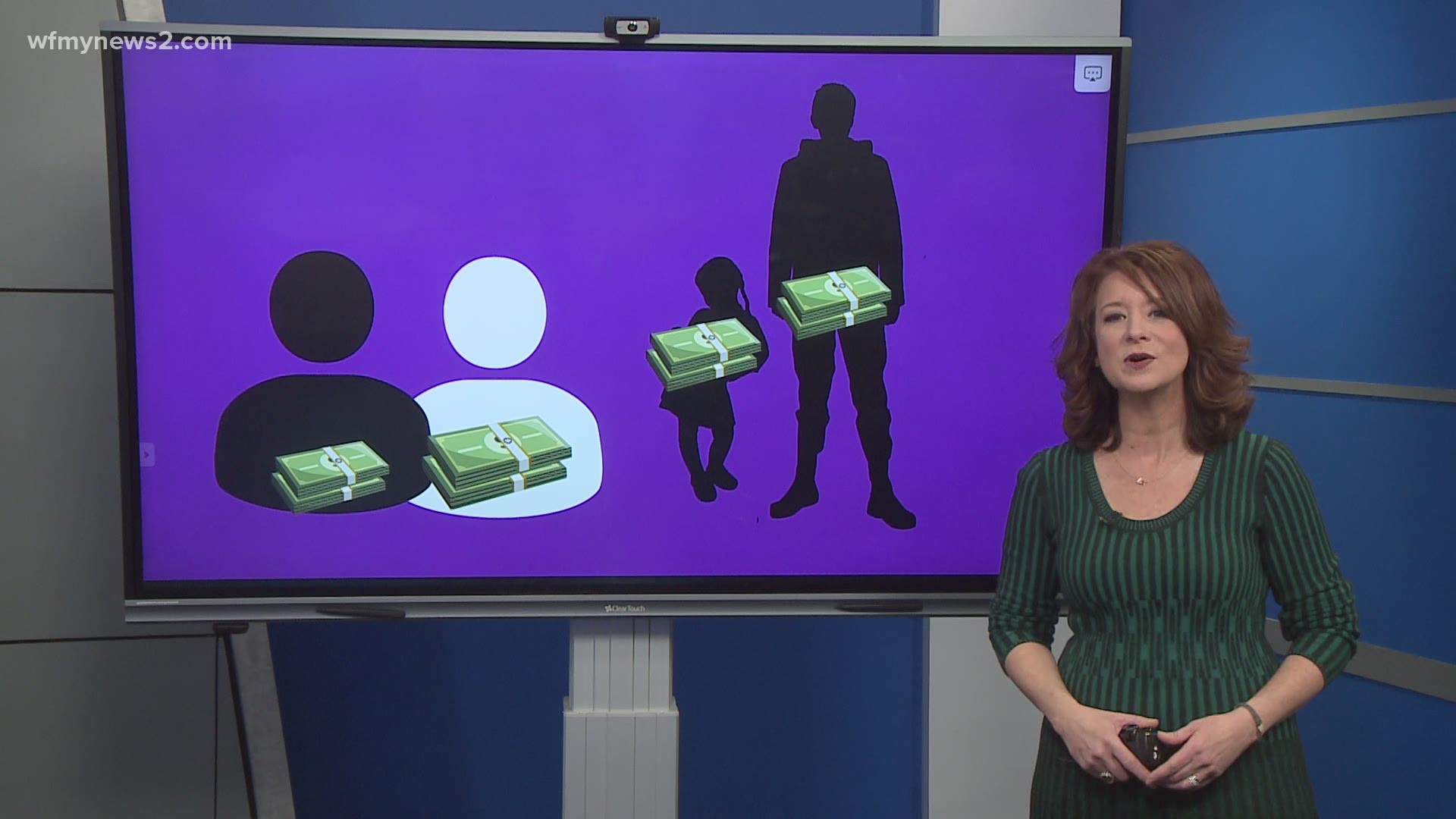GREENSBORO, N.C. — There is so much stuff packed into this bill that just scrolling through it all your finger starts to cramp up. Dig In 2 It combed through line by line for you, and here are some of the main takeaways.
There's $20 billion more for help paying your rent. $128 billion for schools to help brings kids back on campus. $4.5 billion for help paying your energy bill
And there's help for companies too. $7.5 billion for more small-business loans through the paycheck protection program. And $25 billion for struggling restaurants and bars to pay the bills and stay afloat until coronavirus restrictions are lifted.
And there's also something in here that is going to be a big help to anyone who was out of work last year. Some of the unemployment benefits from 2020 will now be tax-free. It only applies to the first $10,200 from unemployment. And it's only at the federal level, you may still have to pay taxes to the state. Plus, CBS News's business analyst says there's one other catch.
"That's for folks who make up to one hundred fifty thousand dollars. That's a change that we've never seen. Unemployment benefits have always been taxable," said Jill Schlesinger, CBS News business analyst.
Sounds great, but viewer Robin had a really good question about this: "What does this mean for the ones who have already filed their taxes?"
Robin, sorry, the answer is not fun. You're probably going to have to file again. Money and finance blog The Balance says it's not uncommon for the tax code to change after someone has already filed. What you normally have to do is file a 1040-X form. You can e-file that through the same program you used to file the first time. But we also talked with some accountants today who said you might want to hold off a week or two. Since this change is going to impact so many people, it's possible the IRS will come up with an easier way to fix the problem. Just set a calendar alert on your phone for the beginning of April so you don't forget.
The plan also includes something you may not have heard about yet: tax hikes. But don't panic, this won't impact you!
This is for multimillion-dollar corporations. According to Politico, tax deductions will be removed for publicly traded companies paying employees more than one million dollars. Another change is adjusting how these big corporations file their taxes. Finally, owners of these businesses will have to account for losses differently than in years past. This only impacts people or businesses worth $60 billion.
There is so much money being spent in President Biden's American Rescue Plan Act that if you took all the dollars and stacked them on top of each other, they would reach halfway to the moon. And with so much cash, we wanted to make sure we weren't missing anything big. So we asked a Duke professor of economics to do some digging too.
"One of the things that's flying under the radar is the relief to state and local governments. And it is a very messy issue because there are people on both sides of the aisle in Congress who are really unhappy with the fact that a lot of states that have overspent in the past are going to be getting a significant amount of relief. … Some states are heavily indebted, have not been managing their finances well, and may get a big infusion of cash and that may help the economy, but certainly is not a really good dynamic," said Duke economics professor Connel Fullenkamp.
Here is a reason to smile in all of that though: To get this passed, folks in Congress agreed every state had to get money not just the ones with a lot of debt. So North Carolina and the Triad will also be getting a ton of cash even though we are already on pretty solid financial ground.
North Carolina is getting $8.7 billion dollars according to a breakdown provided by congressional aides. The amount was determined based on how many unemployed people each state has.
On top of that Forsyth County is supposed to snag about $74 million. And Guilford will get a little over $104 million.
There aren't many restrictions on how the local governments can spend the money. It's just supposed to make up for lost tax revenue from when all the businesses were shut down.

